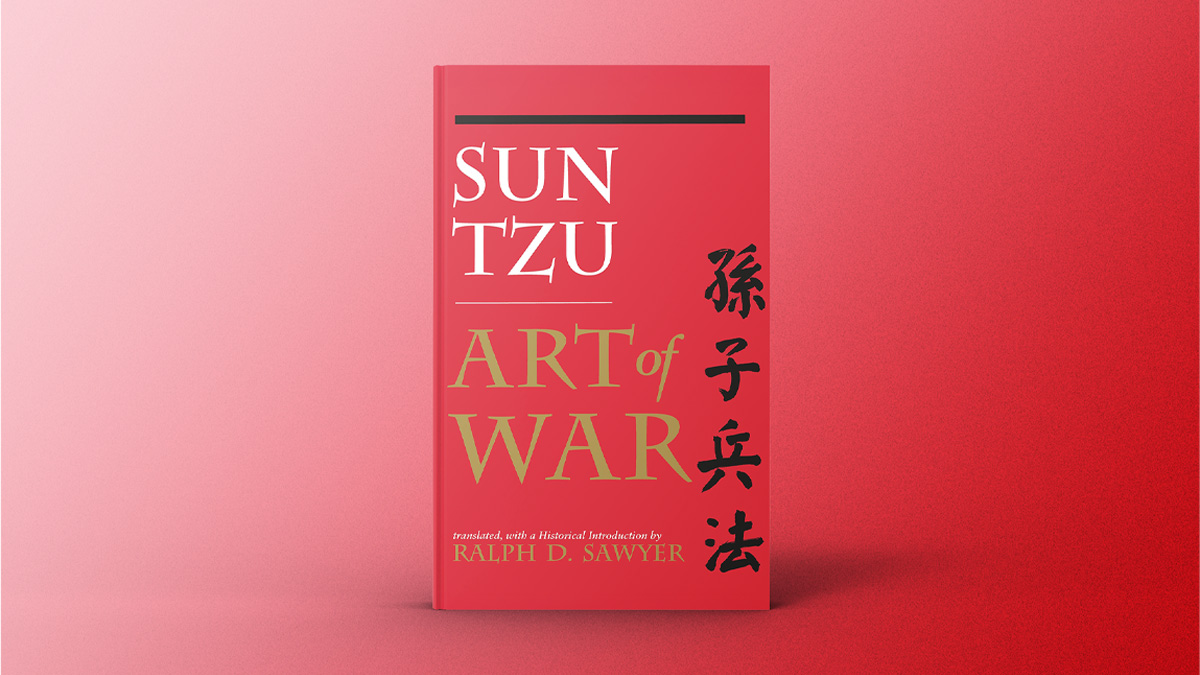Like many other professionals, I have found inspiration in the ancient treatise by Sun Tzu, “The Art of War,” to refine my approach to sports trading. It is an interesting parallel between the most classic, ancient, and famous military art text and sports trading, a field where strategy, tactics, and mindset play fundamental roles.
I have tried to reflect on these parallels and how Sun Tzu’s timeless principles can be applied to this unique field, transforming the way we operate and think in sports trading.
Table of Contents
ToggleStrategy: The Heart of Success
Sun Tzu emphasizes the importance of strategy as the key to winning every battle, and similarly, in sports trading, strategy represents the overarching plan that guides every decision. For me, this strategy is based on a deep understanding of sports markets, an accurate analysis of historical data, and a careful selection of events to invest in. Beyond this, which I believe is as fundamental as it is important, my strategy is long-term and starts with mental and physical preparation, as well as organizational readiness.
Sun Tzu says, “Strategy without tactics is the slowest route to victory. Tactics without strategy are the noise before defeat.” This means that a well-defined strategy must be supported by effective tactics. In my case, the strategy focuses on specific events, choosing markets such as, for example, the football goals market and applying a rigorous methodology to evaluate the probabilities of success.
Know Yourself and The “Enemy”
One of Sun Tzu’s core principles is, “Know yourself and know your enemy. A thousand battles, a thousand victories.” In the context of sports trading, this translates to the necessity of understanding both your own capabilities and limitations, as well as the dynamics of the market and the bookmakers.
Knowing yourself means being aware of your emotions, strengths, and weaknesses. For example, I have learned that my strength lies in my ability to conduct detailed analysis and maintain a positive mindset even in the face of losses. Conversely, I had to work hard to improve stress management and the discipline to follow my strategy strictly without being influenced by momentary market fluctuations.
Knowing the “enemy,” which in trading is the market, involves continuous and detailed analysis of data, statistics, and trends. This includes studying past performances of teams, weather conditions, and even formations and strategies of the coaches. Only with a thorough understanding of these elements can one hope to make accurate predictions and informed decisions.
The Importance of Flexibility
Sun Tzu teaches that flexibility is essential for success. “In war, the situation is fluid; those who cannot adapt to the situation will be defeated.” This lesson is extremely relevant in sports trading, where market conditions can change quickly and unexpectedly.
For me, flexibility translates into the ability to adapt tactics in real-time. For example, during a match, conditions can change dramatically due to injuries, expulsions, or weather changes. Being able to promptly react to these changes and adapt your strategy is crucial. I use live analysis tools to continuously monitor matches and make quick adjustments to my positions.
This, as can be easily understood, is a quality that can be innate but can also be trained, improved, and increased over time. How? Only with constant study, which is actually the next point I want to delve into.
Preparation: The Key to Success
“Victory is achieved before the battle is fought,” writes Sun Tzu. This principle underscores the importance of meticulous, constant, methodical, and cross-disciplinary preparation. In sports trading, preparation means gathering data, analyzing statistics, studying teams and players, and developing a solid strategy based on this information.
My preparation starts with the analysis of historical data and past performances. I use spreadsheets and custom databases to track results and identify recurring patterns. Additionally, I study current market trends and specific conditions of each match.
This preparation phase allows me to have a solid foundation on which to build my predictions and make informed decisions. Does it take time? Without a doubt. But I believe that the best investment you can make is in managing your time.
Risk Management
Sun Tzu also teaches the importance of assessing and managing risk. “Those who know the risks and how to avoid them will be victorious.” In sports trading, risk management is crucial for long-term success. This includes determining how much capital to invest in each event and implementing diversification strategies to minimize potential losses.
I devote a lot of time to risk management, diversifying my positions across different events and markets. I also use stop-loss techniques to protect my capital in case of unfavorable outcomes.
This approach allows me to maintain financial stability and reduce the impact of inevitable losses. Of course, this is a very subjective topic. Risk, or the perception of it, is something very personal and subjective: there are trading professionals who have a very low risk tolerance and others who feel motivated and excited by risk itself, so much so that they consider it a positive point for their strategy, as a stimulus to get out of their comfort zone.
The important thing is to understand how to calibrate it according to your own attitudes.
The Psychology of Trading
Sun Tzu says, “The greatest enemy is within ourselves.” This statement underscores the importance of emotional control and mental discipline in sports trading. Emotions can negatively influence decisions and lead to impulsive and irrational behaviors.
In my years of professional activity in sports trading, I have learned that emotional control is essential for success, but also for handling negative moments. This includes staying calm during losses and remaining disciplined in following the established strategy. I practice mindfulness and meditation techniques to keep my mind clear and focused.
Perseverance and Patience
“Perseverance leads to success,” teaches Sun Tzu. In sports trading, perseverance and patience are indispensable virtues. Success does not come overnight; it requires time, dedication, and the ability to learn from your mistakes.
I have personally experienced the importance of perseverance. There have been times when losses occurred, just as there can be down moments in any professional field, but the determination to improve and the willingness to learn from my mistakes have allowed me to overcome difficulties. Every loss is an opportunity to learn and refine my strategy. Patience helps me stay focused on long-term goals and not be distracted by short-term results.
Conclusions
It seems strange, yet a book so ancient seems written today, a product of the world we live in. Sun Tzu’s “The Art of War” offers valuable teachings that can be successfully applied to sports trading.
From strategy to flexibility, from preparation to risk management, from emotional control to perseverance, each principle has a direct relevance in our field. By applying these teachings, we can transform our approach to sports trading, improving our decisions and increasing our chances of success.
If you enjoyed this content, subscribe to the newsletter for more insights on sports trading, mindset, and personal growth.





